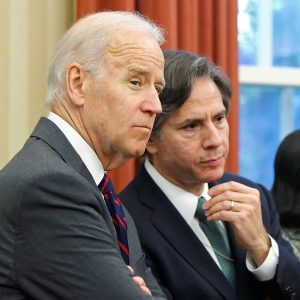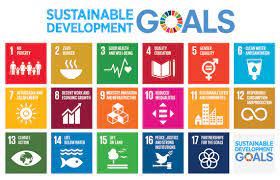
 The current state of the international system. That is what I hope RisingBRICSAM can tackle in the next set of posts. While I remain the named blogger here at RisingBRICSAM, I shall not be undertaking this task alone. Nope. I have been fortunate enough these past weeks to be working with a great set of recent, or near MGA graduates from the Munk School of Global Affairs & Public Policy, University of Toronto.
The current state of the international system. That is what I hope RisingBRICSAM can tackle in the next set of posts. While I remain the named blogger here at RisingBRICSAM, I shall not be undertaking this task alone. Nope. I have been fortunate enough these past weeks to be working with a great set of recent, or near MGA graduates from the Munk School of Global Affairs & Public Policy, University of Toronto.
And all of us in various ways have had opportunities to examine in some detail aspects in the evolving global order. In addition, many of these same researchers have joined in the China-West Dialogue (CWD) research and online meetings. But more on that in a moment.
There is as you will see a host of significant influences shaping the global order and its politics. Probably the most immediate has been Covid-19. The waves of the virus have had a significant influence on all the major and minor actors in the global system.
The global public health crisis has also underscored the growing array of new actors in the global order. Of course the many states – leading powers, major powers, emerging and developing powers, and also the international organizations both formal and the often forgotten but in fact critical informal institutions.
The array of these state actors have been significantly supplemented during the pandemic by sub-state actors – whether regions, networks or local actors and even more dramatically non-state actors such as foundations, public and private corporations. The pandemic has underscored the growing role of technology and digital organizations. One of the envisaged posts will focus on the global developments of Agenda 2030 – the 17 Sustainable Development Goals (SDGs) – and the threat that the Covid-19 pandemic has posed to achieving these critical global development goals by the end of the decade.
The virus has been dramatic globally. But then as well has been the replacement of the Trump Administration and its ‘America First’ foreign policy in the United States with the Biden Administration’s autocracy versus democracy and build back better world (B3W). Both administrations grappled with, or amplified, the reemergence of geopolitics with the intensifying rivalry between the United States and Xi Jinping’s China. Even in these early months, the Biden Administration has represented a highly different domestic and diplomatic effort from the often chaotic years of Trump policies though it appears the Biden Administration has moved slowly on revising aspects of American foreign policy including with China. Some of the early and continuing analysis and research at the Global Summitry Project (GSP) on US and US-China foreign policy has been undertaken by the China-West Dialogue Project (CWD) co-chaired by Colin Bradford, non-resident senior fellow from Brookings and myself. For almost two years we have met largely virtually with thought leaders – former officials, policymakers, academic experts – from around the globe to build a narrative that can accommodate competition, avoid confrontation and vitally permits collaboration – an approach that counters the ideological divisions that have emerged with rising US-China tensions.
The initial CWD efforts sought to dismantle the bipolar geopolitics. Current policies were not just constructed on US-China global politics but on a wider concept of the West. But constructing the concept of ‘West’ had its own limitations. And there were many discussions. Some argued the West was limited to North American and European states alone. It didn’t include Asian and Latin American states. Yet for the Co-Chairs and a number of the Principals, the West was never defined just by the North Atlantic countries. We stressed that for us CWD included Japan, Korea, and indeed others. There was disagreement. But not unreasonably others saw the CWD as something even more dramatically encompassing than CWD did. Sigmar Gabriel, former federal minister and vice chancellor of Germany and currently Chairman of Atlantike-Brucke, in an article from the past year in Project Syndicate suggested this wider incorporation of states when framing of the West:
The idea of “the West” was always meant to be universal, offering a normative framework for peaceful, prosperous coexistence among all people. Human rights, freedom of expression, democratic self-determination, and the rule of law are not exclusive to any region or group of countries.
Further, Sigmar Gabriel touched on one of the imperatives in CWD discussions focussing on a common thread that permits several narratives to emerge. Again, from Project Syndicate he wrote:
The world’s wealthy democracies will either develop a socially inclusive form of global capitalism or lose in the competition with authoritarian regimes like China. As in the second half of the twentieth century, when the social market economy made capitalism seem more attractive than the alternatives, today’s liberal democracies must reinvent capitalism once again.
A final target in examining the current shape of the global order and the influences on it refocused and returned our attention to global governance issues and institutions. While geopolitics has assumed a larger presence, global governance worries remain central still to international politics. Growing concerns over achieving Agenda 2030 have been identified already. Central to sustainability are the climate change targets – 13, climate action, 14, life below water, and 15, life on land. There are significant summits including COP15 in Kunming on the Convention on Biological Diversity (CBD), and COP26 in Glasgow on the UN Climate Change Conference immediately following the G20 Leaders’ Summit, all occurring in the fall. These summits are vital in the multilateral effort to deal with climate change, the loss of biodiversity and the singular effort to reduce carbon emissions and keep the global temperature rise to 1.5C. The CWD has already urged the ‘strengthening of the G20‘. In the CWD examination it becomes evident that the G20 is the key international institution that brings the leading powers, the United States and China together with the key rising powers and traditional middle powers to work out the growing global governance challenges.
We hope to have several posts exploring these issues. One will focus on US foreign policy with a focus on the current Biden foreign policy. Then we hope to explore, with another post, the recent Japanese foreign policy followed by the new Japanese Prime Minister, Yoshihide Suga. The post will explore US-Japanese and Japanese-Chinese relations and policies but also the wider Asian and Indo-Pacific concerns. And, finally we hope to present a post that examines closely Chinese foreign policy under Xi Jinping with respect to the United States and more broadly Asia and Europe. And, if all goes well, we hope to produce a Special Issue on ‘strengthening the G20’ with the Global Summitry e-journal.
Stay tuned!
Image Credits: wsj.com/international.gc.ca

